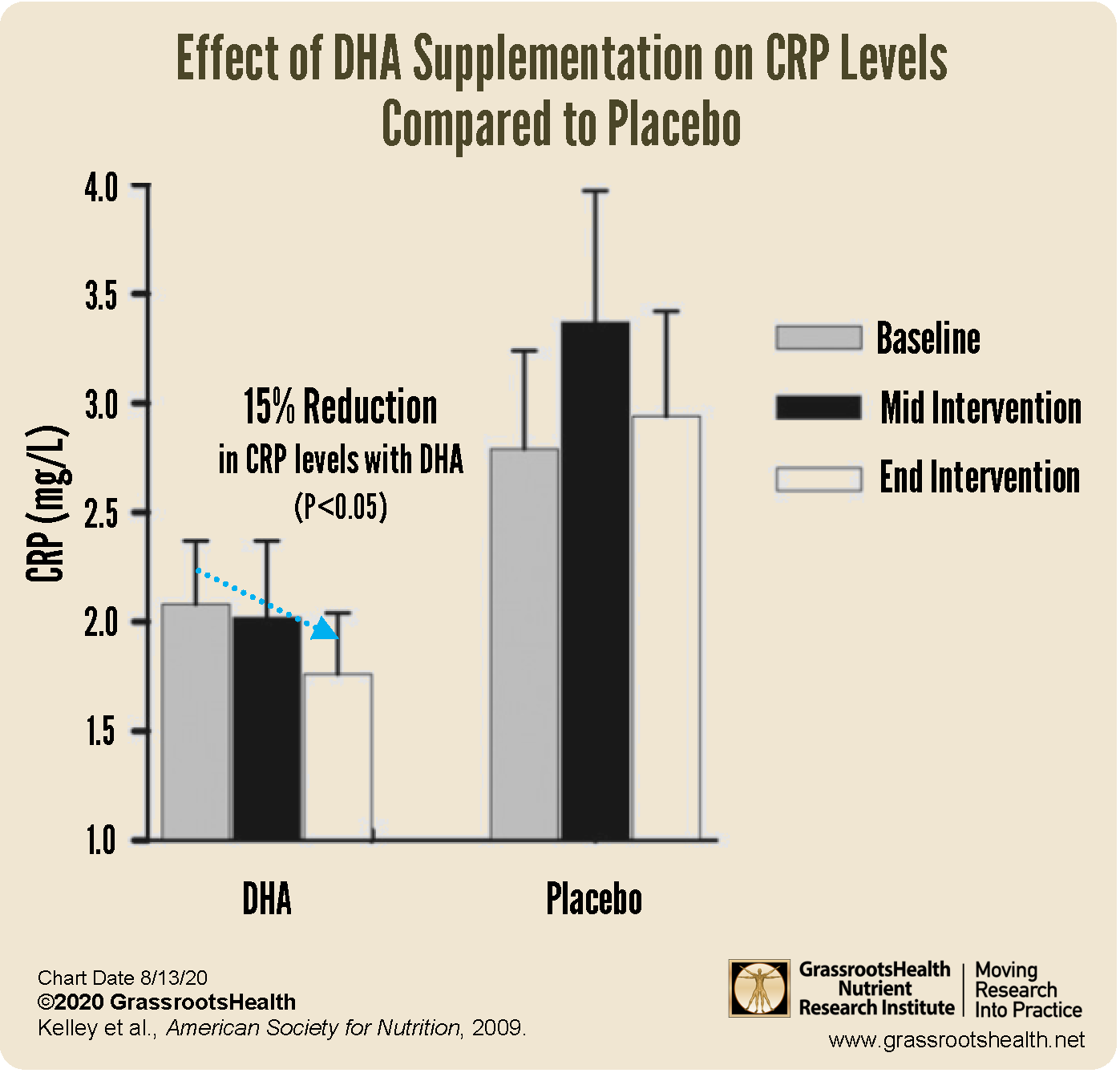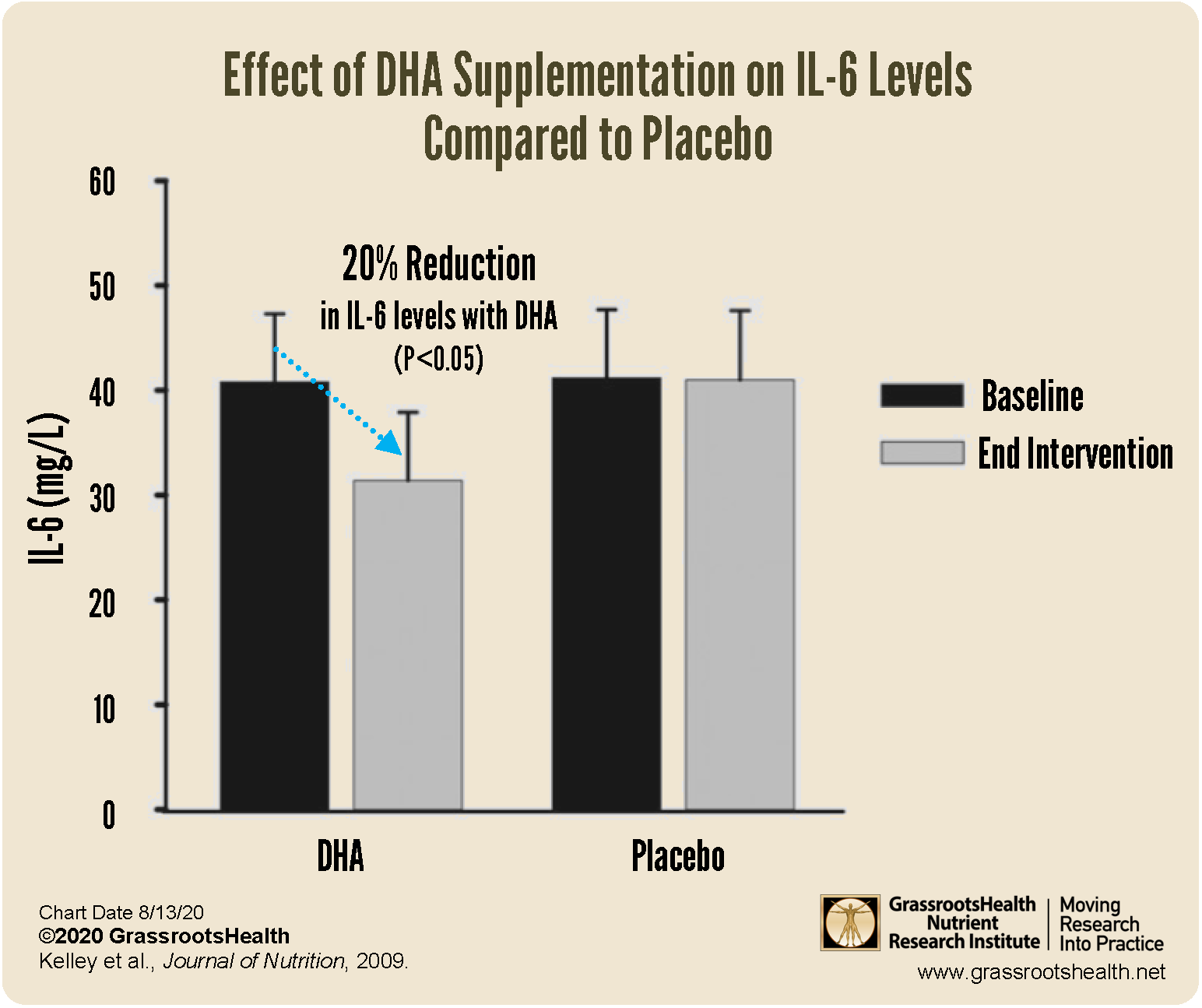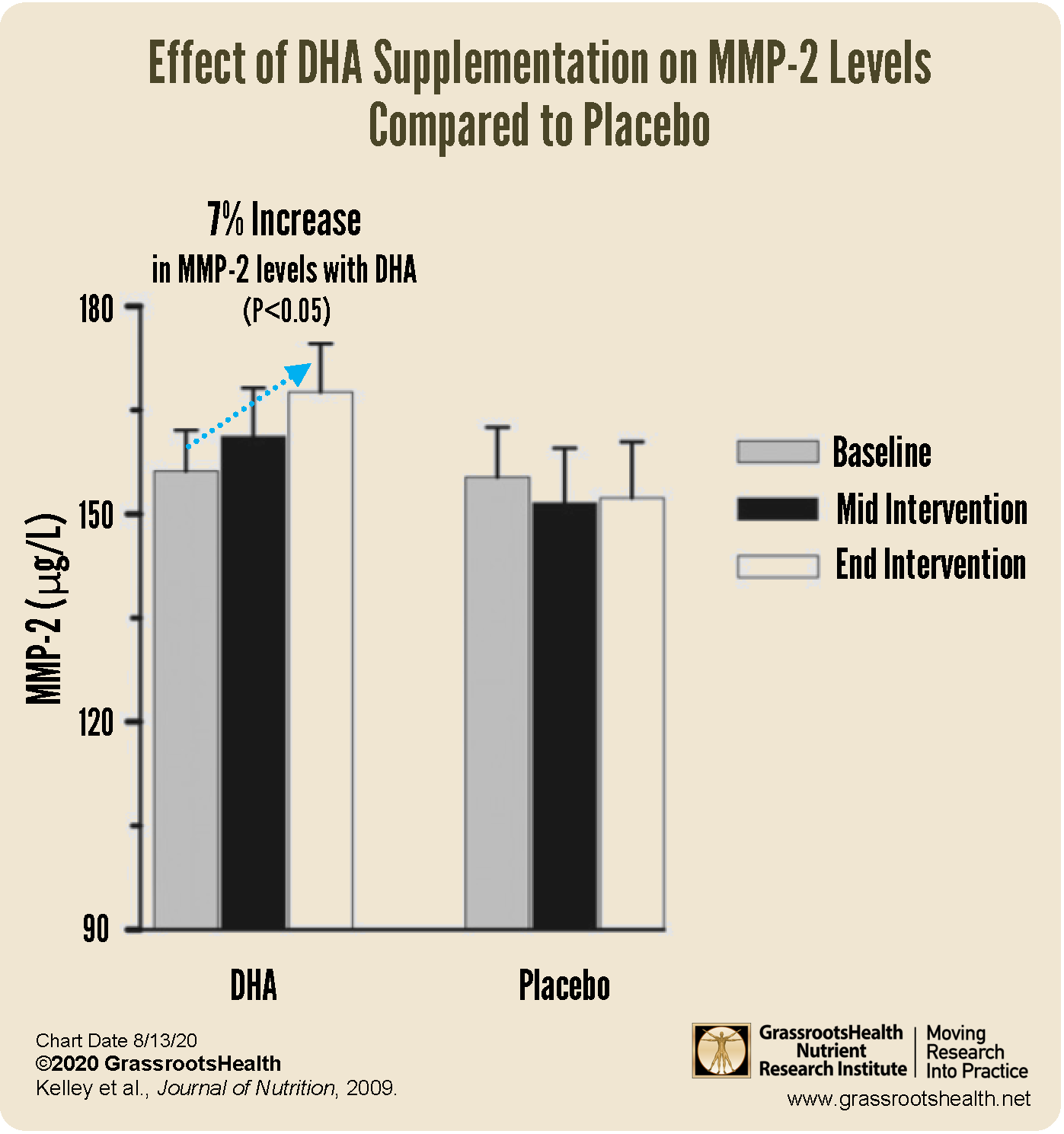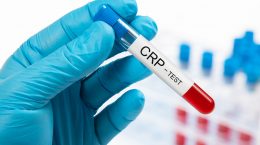Published on August 14, 2020
Omega-3 fatty acids are well known to provide healthful benefits for the heart, reduce inflammation and reduce the risk of death.
A study by Kelley et al. published in The Journal of Nutrition highlighted the effects of supplementation with an omega-3 fatty acid, docosahexaenoic acid (DHA), on inflammation in men who were at high risk of developing heart disease.
Inflammation and Heart Disease
 Although it is not proven that inflammation causes cardiovascular disease, inflammation is a risk factor for heart disease and stroke much the same as factors like smoking, high blood pressure and high blood triglycerides increase risk. A series of studies published in prestigious medical journals have shown that C reactive protein (CRP) is a better predictor of cardiovascular risk than other blood tests such as cholesterol.
Although it is not proven that inflammation causes cardiovascular disease, inflammation is a risk factor for heart disease and stroke much the same as factors like smoking, high blood pressure and high blood triglycerides increase risk. A series of studies published in prestigious medical journals have shown that C reactive protein (CRP) is a better predictor of cardiovascular risk than other blood tests such as cholesterol.
CRP has been used for decades as a general marker of inflammation and can be measured in your blood.
CRP levels increase when there’s inflammation in the body and can be used by your doctor to assess your risk of developing coronary artery disease and heart attack. In fact, measuring CRP allows doctors to gauge your level of inflammation and predict your risk of having a heart attack over the next 5 to 10 years if you have risk factors for heart disease.
However, it must be recognized that CRP is not specific to heart disease. Elevated CRP levels do not indicate the cause of inflammation and may not be related to your heart. CRP levels are elevated in a number of chronic inflammatory conditions such as rheumatoid arthritis and diabetes.
A Randomized, Double-blind, Placebo-controlled Study
 Kelley et al. investigated the effects of supplementation with 3 grams per day of DHA on levels of inflammation in men with high blood lipid levels in comparison with those receiving placebo (olive oil) over 3 months.
Kelley et al. investigated the effects of supplementation with 3 grams per day of DHA on levels of inflammation in men with high blood lipid levels in comparison with those receiving placebo (olive oil) over 3 months.
There were 34 men (17 in each group), aged 39-66 years, with high blood levels of triglycerides.
The men in the study were asked not to change their usual diets and activity levels – this was done to help reduce confounders (factors not involved in the study design that can affect results). For example, if a large number of men in one of the study groups quit smoking (not part of the study design) it would likely reduce their inflammation and would impact the results of the study.
The study found that those receiving the DHA had significantly lower levels of several markers of inflammation (including CRP and IL-6) after 3 months than the placebo group.
As illustrated in the chart above, while the reduction was not significant at the halfway point (45 days) the data showed a 15% reduction in CRP levels at 90 days. CRP levels did not significantly change in the placebo group during the study. Likewise, as seen in the chart below, IL-6* levels decreased by 20% after 90 days in the men taking DHA supplements, with no change seen in the placebo group.
*Interleukin-6, or IL-6, is an inflammatory cytokine found to be elevated in chronic inflammatory conditions and autoimmune diseases.
Matrix metalloproteinase-2, or MMP-2, is a protein with anti-inflammatory properties that may help lessen the effects of inflammatory factors. The chart below shows a 7% increase in MMP-2 after 90 days in the men supplementing with DHA in comparison with no change found in the placebo group.
Overall, DHA supplementation may improve heart health in several ways including a significant anti-inflammatory effect. Of note, the reduction in CRP concentrations found in this study is comparable to the 15-25% reduction in CRP caused by statins (the frontline pharmaceuticals used to prevent heart attacks and stroke) without any of the adverse effects.
Could increasing your omega-3 intake improve your heart health and inflammation levels?
Are you getting enough omega-3 fatty acids through your diet and with supplements? Have you measured your Omega-3 Index or your CRP levels lately to make sure? Test your levels today by ordering our Inflammation Panel Test kit, and adjust your supplementation and/or diet as needed to ensure you are getting enough vitamin D and omega-3s to support healthy cardiovascular function and inflammation levels.
Are You Getting Enough Vitamin D as Well?
Do you know what your vitamin D level is? Be sure to test today to find out, and take steps to keep it within a target of 40-60 ng/ml or 100-150 nmol/L!
Through GrassrootsHealth Nutrient Research Institute, you can also test your essential elements magnesium, copper, zinc and selenium, toxins such as lead, mercury and cadmium, as well as your omega-3 levels, inflammation levels and thyroid stimulating hormone (TSH) level. Find out your levels today! Log on to the test selection page (click the link below) to get your tests and see for yourself if your levels can be improved.
Make sure you track your results before and after, about every 6 months!
How can I track my nutrient intake and levels over time?
To help you track your supplement use and nutrient levels, GrassrootsHealth has created the Personal Health Nutrient Decision System called
For each specific supplement, you can track what days you take it, how much, and many other details. This will help you know your true supplemental intake and what patterns of use work for you to reach and maintain optimum nutrient levels. Check it out today!










